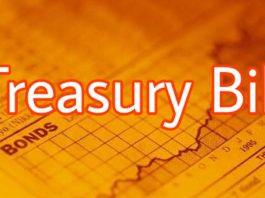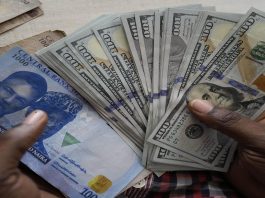Liquidity: Cash-Rich Nigerian Banks Influence ‘Rate’
Amidst strained liquidity experienced in the financial system, some highly liquid Nigerian deposit money banks have raised rates on their short-term loans to peers, according to market analysts’ note.
The bank in the category includes the sector’s heavyweights in the Tier-1 capital category. MarketForces Africa reported recently that deposit money banks offloaded their Nigerian Treasury Bills holdings to reduce their positions as part of efforts to meet regulatory daily liquidity requirements.
As a result of market pressure on funding costs driven by interest rate hikes and cash reserve ratio debits for failing to meet the 65% loan-to-deposit ratio, operators were noted to have pitched tents at the Central Bank of Nigeria’s standing lending facility.
“The financial system liquidity remained materially tight, with interbank rates staying at 15.0% for most of August. Banks continued to queue up at the CBN discount windows to supplement liquidity, net-borrowing about N914.8 billion”, according to CardinalStone Limited.
It is noted that after Federal Accounts Allocation (FAAC) disbursements to states and relatively heavy inflows from maturing instruments in recent times, the cash flow level in the financial system has improved, according to market analysts.
Data from FMDQ Exchange shows that money market rates have declined below 10%. This signal a positive movement when compared with the previous month when the overnight lending rate and open buy back were at 15% on the average
Last week, analysts at Cowry Asset Management said in a market note that despite the open buyback rate and overnight lending rate both falling by 12 basis points to 8.50% and 9.00%, respectively, the Nigerian Interbank Offered Rate (NIBOR) increased for the majority of maturities.
The development followed highly liquidity local banks’ decision to demand higher rates amidst unstable financial system liquidity. Short-term borrowing rates in the money market have been under pressure due to low maturities.
However, the financial market liquidity has improved as money market rates dropped to a single digit from the previous double-digit high. Despite relatively healthy liquidity, some banks, especially Tier-2 lenders, continue to borrow from peers.
The interest rate for 90-day deposits is near 10%, according to some traders while lending rates crossed 30% since Nigeria’s benchmark rate was adjusted to 14%. For Nigerian banks, change in market dynamics has forced lenders’ to re-price their interest rates.
Experts told MarketForces Africa that NIBOR represents the short-term lending rates of selected banks in the Nigerian inter-bank market, quoted as annualised rates. “NIBOR is a ‘polled’ rate, meaning that a set of selected banks known as “Reference Banks” submit quotes which are processed to give NIBOR”
Recently, the Central Bank of Nigeria told deposit money banks that a 4.20% interest rate should be paid for customers’ savings deposits from 0.15%. The money rate was revised from 10 per cent to 30 per cent of the Monetary Policy Rate (MPR).
READ: BUA Seeks Reduce Influence of Cement Oligarchs to Crash Price
The new directive took effect on August 1, 2022. In a related development, a number of local lenders dumped their treasury bills instruments in the fixed income market. Consequently, Nigerian interbank treasury true yield (NITTY) rose for the majority of tracked maturities amidst sell pressure, market analysts at Cowry Asset Management Limited stated. # Liquidity: Cash-Rich Nigerian Banks Influence ‘Rate’




